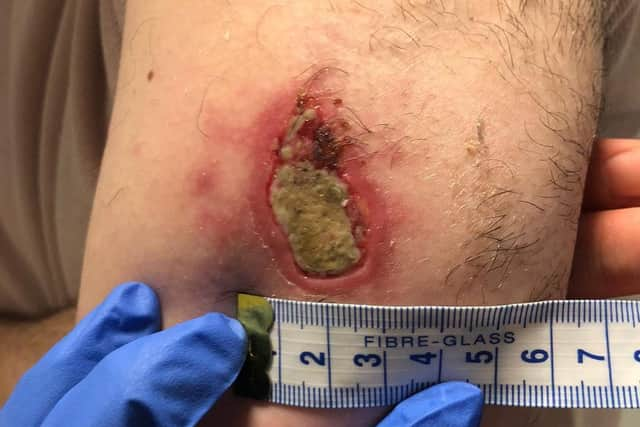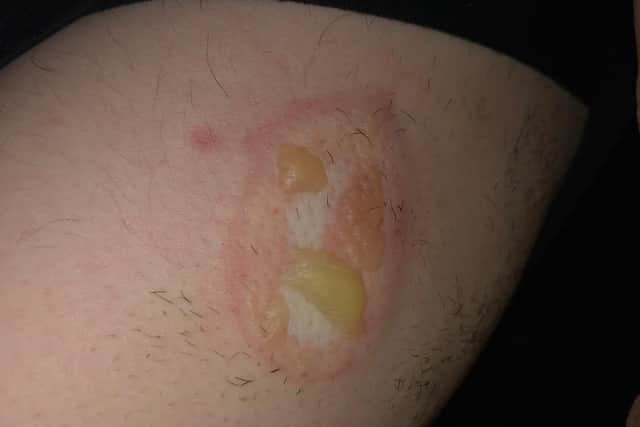This is the damage a suspected SPIDER bite caused to Milton Keynes man
and live on Freeview channel 276
A young Milton Keynes man went through four months of investigations for a horrible wound that would not heal - only to discover it was probably caused by a SPIDER.
Carl Jones woke up one morning in January at his Coffee Hall home with a blistering wound on his left upper arm. He had no idea what had caused it.
Advertisement
Advertisement
The wound became infected and got worse as worse as the weeks went by, literally eating away at his flesh.
"I underwent investigations for Borreilia, TB and eventually skin cancer as it was not healing after four months," he said,
Eventually a skin biopsy was performed, which removed the centre of the lesion. It was only then that it finally started to heal.
Carl, who is 26, works as microbiologist and said his mystery wound was the talk of the lab as he and his colleagues wondered what may have caused it.
Advertisement
Advertisement
"The wound was chronically infected with a few types of bacteria sometimes associated with insect bites over the period before having the biopsy. So we were always pretty sure it was a bite of some kind but were thinking more flying insect.


This week, however, a discovery in Carl's bathroom may have solved the mystery (see picture in Twitter post on this article).
"I discovered this spider in my bath and after running the picture through Google image search, it was a Noble False Widow spider."
This species originated on the Canary Islands and Madeira, but is now in the running to be one of the world's most invasive species of spider. he reasons behind the rising numbers are not clear, but scientists have suggested that a new generation mutation within the species may have made the noble false widow more adaptable to new environments.
Advertisement
Advertisement
Scientists say cases of noble false widow spider bites are on the rise in the UK and their venom can trigger reactions similar to those seen with true black widow bites.


Symptoms can include pain, swelling, nausea, tremors, altered blood pressure, impaired mobility as well as wounds and severe bacteria infections.
It has been found that most noble false widow bites occur in the home, with 88 per cent occurring while the victim slept or had the spider trapped in their clothes.